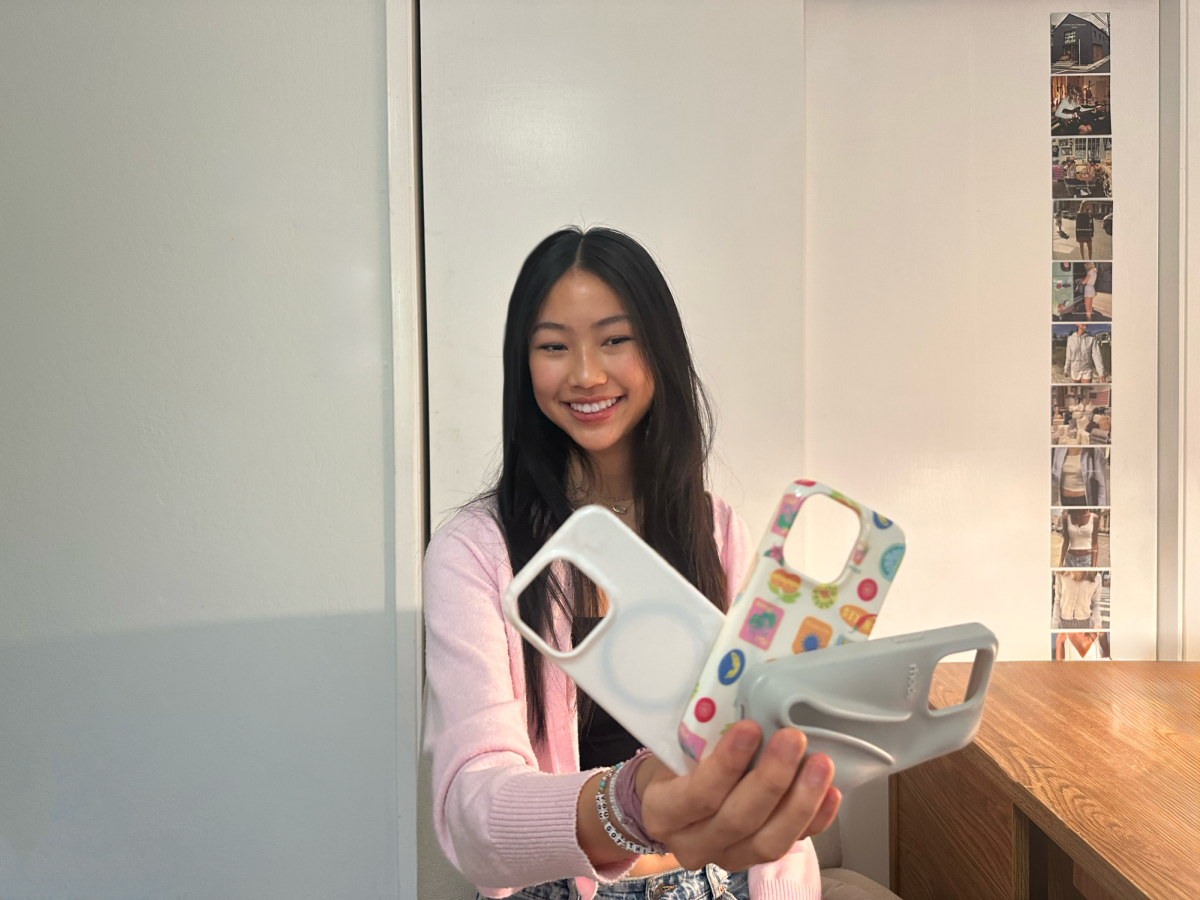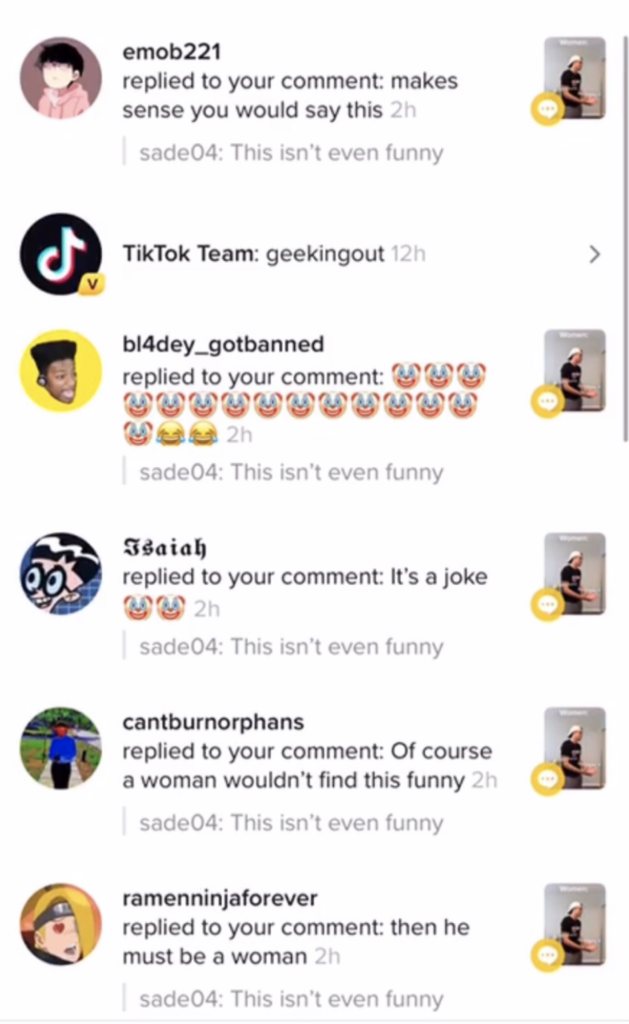Whether it’s judging a girl for making videos with guys, commenting on her weight and appearance or criticizing her for dancing to a popular song, the video-sharing app TikTok has quickly divulged from an app where friends share playful videos with one another to a platform for spreading rude, uncalled-for comments to females.
In the past year, the popularity of the app has skyrocketed, especially among teens, with 9 out of 10 users using it multiple times a day, according to Oberlo. Especially popular users can attract millions of fans.
Fifteen-year-old Charli D’Amelio (@charlidamelio) from Connecticut quickly rose to fame with 49.6 million followers and 3.3 billion likes (as of April 19) after making ordinary dance videos with her friends. She, like many other rising creators, faces hundreds of hate comments every day.
“She literally looks like every basic white girl,” one user said. “Anyone else think it's inappropriate for a 15-year-old to dance to this?” celebrity Perez Hilton said.
At the beginning of her fame, D’Amelio didn’t speak up about the hate, but she has opened up in hopes of showing people that their words hurt.
In a recent campaign for Internet Safety Day with UNICEF, a United Nations agency that focuses on providing humanitarian and development aid to children worldwide, D’Amelio referred to the negativity and cyberbullying on the app.
"Some of the most hurtful comments I've read about myself online are 'She's fatter than when we got her famous,' or ‘She's ugly,’” she said.
D’Amelio said these comments target her insecurities about her body image, and she emphasized that the constant slew of negative comments would take a toll on the mental health of any teenager.
Sophomore Sade Hashemi sees no need for such cruelty.
“Charli is a great dancer and it’s not easy to put yourself out there on social media,” Hashemi said.
Sophomore Naomi Mallik added that these disparaging comments usually stem from “insecure people who probably feel jealous of girls on TikTok.”
The increasing amount of hate has caused the app to become toxic for many creators, not just celebrities like D’Amelio. In a video that stated that women weren’t funny, a common “joke” that many people find disrespectful, Hashemi commented that the video wasn’t funny. In return, she also experienced hate.
She received almost 100 comments in reply, such as “Of course a woman wouldn’t find this funny” and “Lol you’re just mad that you’re a woman.”
Mallik, who has more than 15,000 followers and almost 900,000 likes on her TikTok account @naomis_m, faced rude comments in the past about her appearance or her outfits. D’Amelio, Hashemi and Mallik’s scenarios are just a few of many.
Although they may not always show it, the hurtful comments have serious implications for many creators’ self-image. D’Amelio’s friend, creator Madi Monroe, received many negative comments about her weight and appearance, prompting her to become immensely self-conscious. In March, she posted on Twitter, “k I get it I need to lose weight ya’ll can stop now.”
These comments not only affect Monroe but also contribute to a toxic skinny culture. Monroe is slim herself, prompting other girls bigger than her to become self-conscious about their own bodies.
Recently, another new, objectifying trend arose on the app where people get their parents, siblings or friends to rate popular stars on their looks. Many took part in this trend without realizing how it hurt the people being rated. Some creators spoke out about this, with D’Amelio tweeting, “why am I being rated by moms? yeah I’ll pass on that whole trend.”
Monroe was harshly criticized throughout the trend, prompting widespread support from her friends in response.
Beyond criticizing young women’s bodies and appearances, many trolls take to name-calling that targets females. In one instance, at a major convention for creators and their fans, Playlist Live, commenters called the popular creator Sissy Sheridan a “slut” and a “hoe” after she posted videos with other male creators.
When Sheridan tried to expose the double standard between herself and her male friends who posted the exact same videos but received different responses, she received even more backlash, prompting her to turn off the commenting feature on all of her videos from the convention.
Female creators receive immense amounts of hate on the app, ranging from attacks on their appearance to criticism with blatant double standards.
While this behavior could underscore a greater problem on the internet and society, a way to help solve this problem is for the app itself to help creators impose harsher restrictions on the types of comments that can be said on their posts. Ultimately, though, it falls upon the users of the app to promote positivity.
"I'm still a 15-year-old teenager — girl, especially,” D’Amelio said in her UNICEF campaign. “It hurts for everyone, no matter who you are. Getting hundreds of thousands of hate comments per week is a lot to handle.”
























